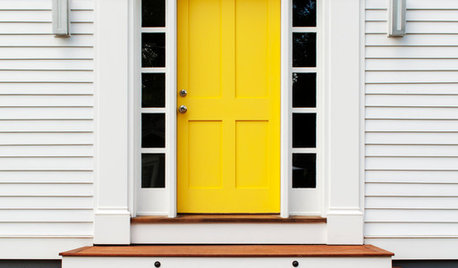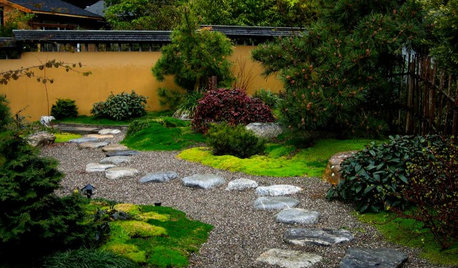Toothpaste Quiz -- Trick Question
chisue
last month
last modified: last month
Related Stories

FUN HOUZZTake the Harry Potter Design Quiz!
Prove You're Ready to Face You-Know-Who With This 7-Question Quiz
Full Story
FUN HOUZZHouzz Quiz: What's Your Decorating Style?
Answer these 9 questions to find out what decorating style suits you best
Full Story
KITCHEN DESIGNHouzz Quiz: What Kitchen Countertop Is Right For You?
The options for kitchen countertops can seem endless. Take our quiz to help you narrow down your selection
Full Story
FUN HOUZZHouzz Quiz: What Color Should Your Front Door Be?
Think you’re hip enough for orange? Or optimistic enough for yellow? Take our front-door personality quiz and find out
Full Story
SELLING YOUR HOUSE10 Tricks to Help Your Bathroom Sell Your House
As with the kitchen, the bathroom is always a high priority for home buyers. Here’s how to showcase your bathroom so it looks its best
Full Story

FUN HOUZZHouzz Quiz: What Should You Do With a Basement?
Take our quiz to find out if you should turn your subterranean space into a London pub, a Lego lounge or something else
Full Story
LANDSCAPE DESIGNPerspective Tricks to Make Your Garden Appear Larger
Simple tricks used by artists can be employed in garden design to alter perceptions of space
Full Story
SMALL KITCHENS19 Design Tricks to Maximize a Small Kitchen
Expand your visual and physical space with these tips for increasing storage and openness
Full Story
BATHROOM DESIGN14 Design Tips to Know Before Remodeling Your Bathroom
Learn a few tried and true design tricks to prevent headaches during your next bathroom project
Full Story





morz8 - Washington Coast
tsugajunkie z5 SE WI ♱
Related Discussions
Today's Trivia Quiz
Q
Today's Trivia Quiz
Q
Monday's Trivia Quiz
Q
Tuesday's Trivia Quiz
Q
foodonastump
HU-787167202
Patriciae
jrb451
Annie Deighnaugh
vgkg Z-7 Va
chloebud
Elmer J Fudd
wildchild2x2
Fun2BHere
bpath
Elmer J Fudd
OutsidePlaying
jmm1837
Fun2BHere
dadoes
chisueOriginal Author
chloebud
Elmer J Fudd
dadoes
chisueOriginal Author
dedtired
Toronto Veterinarian
Elmer J Fudd
foodonastump
chloebud
carolb_w_fl_coastal_9b
Elmer J Fudd
foodonastump
Toronto Veterinarian
Toronto Veterinarian
foodonastump
Lars
User
Elmer J Fudd
foodonastump
Elmer J Fudd
Toronto Veterinarian
Elmer J Fudd
foodonastump
bragu_DSM 5
Elmer J Fudd
foodonastump